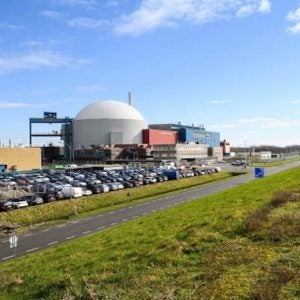Commonwealth Fusion Systems (CFS) announced on 1 December that it has closed on more than $1.8 billion in Series B funding to commercialise fusion energy. This includes capital to construct, commission, and operate SPARC, the world’s first commercially relevant net energy fusion machine. In addition, it will enable the company to begin work on ARC, the first commercial fusion power plant, which includes developing support technologies, advancing the design, identifying the site, and assembling the partners and customers for the future of fusion power.
The funding round was led by Tiger Global Management with participation by new investors, including (in alphabetical order) Bill Gates; Coatue; DFJ Growth; Emerson Collective; Footprint Coalition; Google; JIMCO Technology Fund, part of JIMCO, the Jameel Family’s global investment arm; John Doerr; JS Capital; Marc Benioff’s TIME Ventures; Senator Investment Group; a major university endowment; and a pension plan; as well as current investors, including Breakthrough Energy Ventures; The Engine; Eni; Equinor Ventures; Fine Structure Ventures; Future Ventures; Hostplus; Khosla Ventures; Lowercarbon; Moore Strategic Ventures; Safar Partners; Schooner Capital; Soros Fund Management LLC; Starlight Ventures; Temasek; and others committed to the commercialisation of fusion energy to mitigate climate change.
“The world is ready to make big investments in commercial fusion as a key part of the global energy transition. This diverse group of investors includes a spectrum of capital from energy and technology companies to venture capitalists, hedge funds, and university endowments that believe in fusion as a large-scale solution to decarbonise the planet,” said CFS CEO Bob Mumgaard.
CFS has raised more than $2 billion in funding since it was founded in 2018 based on decades of MIT fusion research. CFS is collaborating with MIT to leverage decades of research combined with new high-temperature superconducting (HTS) magnet technology. HTS magnets will enable compact fusion power plants that can be constructed faster and at lower cost. The mission is to deploy fusion power plants to meet global decarbonisation goals as fast as possible.
In 2021 CFS began construction on campus that will host the SPARC building, a manufacturing facility, and company headquarters. In collaboration with MIT, CFS built and demonstrated high temperature superconducting magnets, the strongest of their kind and the key technology to unlock commercial fusion energy. SPARC is expected to achieve commercially relevant net energy from fusion in 2025 and the ARC fusion power plant is expected to be completed in 2030.






